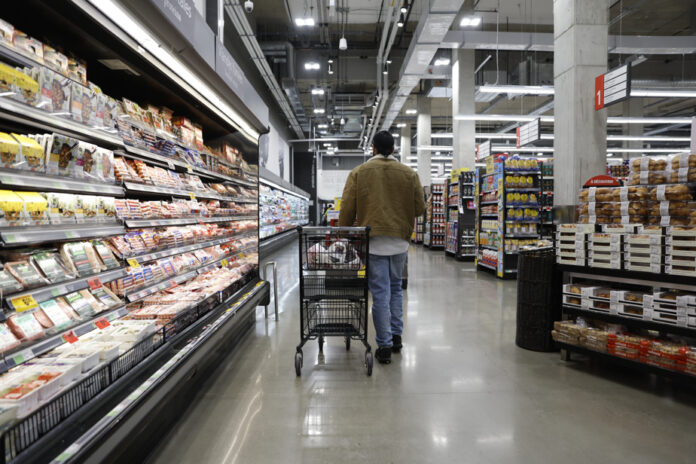(Toronto) The cost of groceries is finally stabilizing, but food prices should not be expected to return to pre-pandemic levels, the Royal Bank of Canada has warned in a new report.
In the document published this week, the Royal points out that the main drivers of food inflation, such as global supply chain problems and transport costs, have eased, but that prices will not fall anytime soon. .
The bank said food prices have soared 18% over the past two years, adding pressure on Canadian household budgets as interest rates rise.
Supply chain bottlenecks, shipping costs and price volatility for food commodities, such as wheat and oils, have stabilized and concerns surrounding the impact of geopolitical conflicts – mainly the war in Ukraine – have subsided.
But the Royal Bank warned that drought and other extreme weather events were becoming more frequent and could “significantly limit” agricultural production, which would affect the food supply chain.
The report cites as an example the shrinking size of cattle herds in Canada and the United States, after recent droughts forced some meat producers to sell or slaughter cattle in large numbers.
The bank’s report also says labor shortage issues, exacerbated by an aging population, and rising wages will keep food prices high.
Canadians have been paying more for less food since the start of 2021, which has reduced demand for more expensive food items, the report continues.















